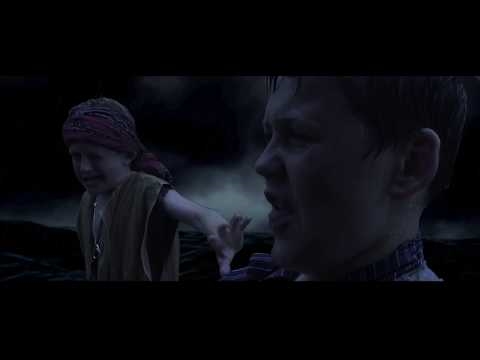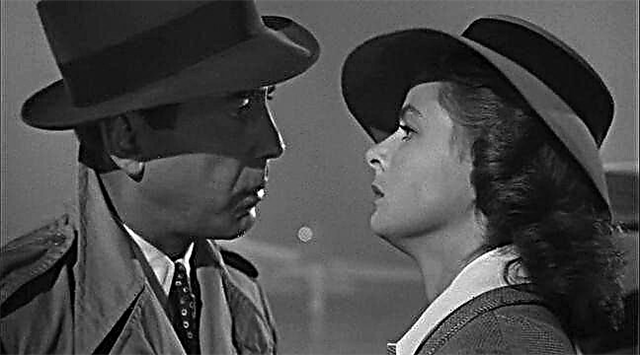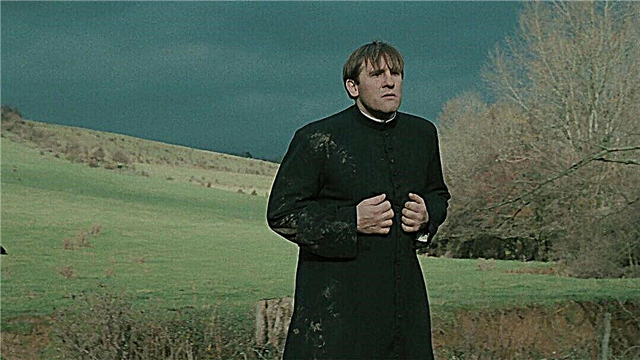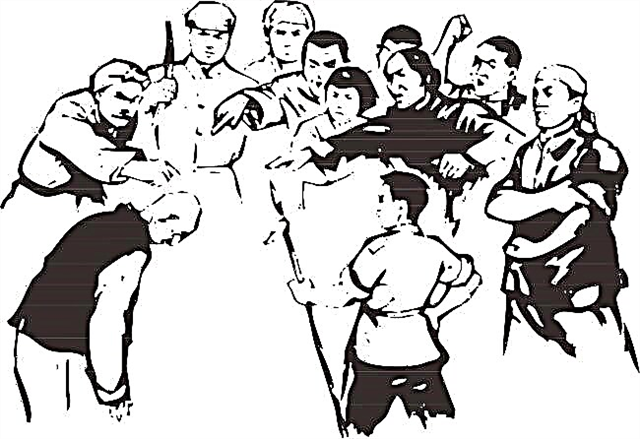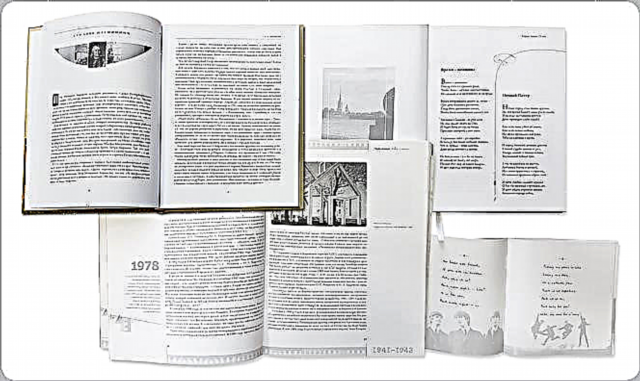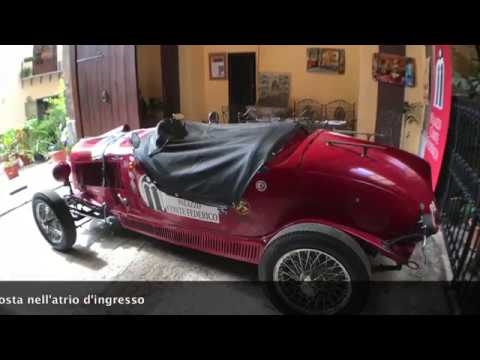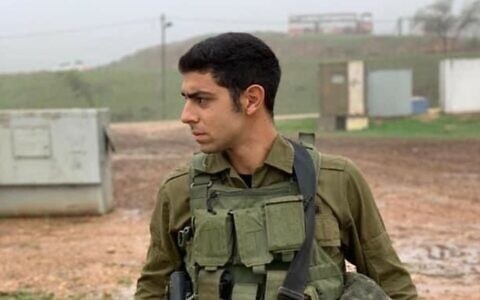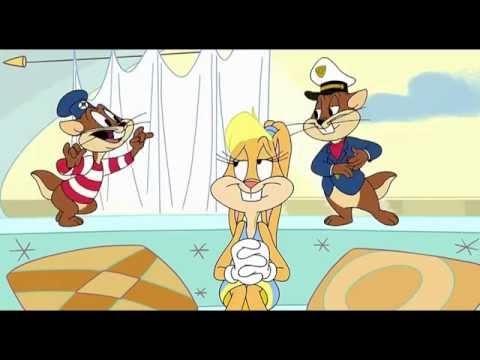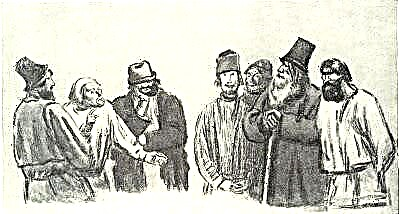The Commander of the Order of Calatrava, Fernand Gomez de Guzmán, arrives in Almagro to the Master of the Order, Don Rodrigo Telés Chiron. Young Master has, over the years, and only recently inherited this high post from his father. Therefore, the commander, crowned with military glory, treats him with some distrust and arrogance, but is forced to respect respect befitting the occasion. The commander came to the master to tell about the strife characteristic of XV century Spain. After the death of the Castilian king, Don Enrique, King Alfonso of Portugal is pulled to the crown - it is his rights that the native commander and his supporters consider indisputable, and also through Isavella, his wife, don Fernando, Prince of Aragon. The commander insistently advises the master to immediately announce the gathering of the Knights of the Order of Calatrava and to take the battle of Ciudad Real, which lies on the border of Andalusia and Castile and which the king of Castile considers his possession. The commander offers the master his soldiers: they are not very many, but they are warlike, and in a village called Fuente Ovehuna, where the commander settled, people can only graze cattle, but they can’t fight at all. The master promises to immediately assemble an army and teach a lesson to the enemy.
In Fuente Ovehuna, peasants do not wait for the commander to leave: he does not enjoy their trust, mainly because he persecutes girls and beautiful women - some are seduced by his love assurances, others are frightened by threats and possible revenge of the commander in case of obstinacy. So, his last hobby is the daughter of the Alcalde Fuente Ovehuna, Laurencia, and he does not give the girl a pass. But Laurencia loves Frondoso, a simple peasant, and rejects the commander’s rich gifts, which he sends her with his servants Ortuno and Flores, who usually help the lord to seek the favor of the peasant women.
The battle for Ciudad Real ends with a crushing victory for the Master of the Order of Calatrava: he broke the defenses of the city, beheaded all the rebels from the nobility, and ordered ordinary people to be whipped, the Master remains in the city, and the commander returns with his soldiers to Fuente Ovejuna, where the peasants sing a toast to his honor, the Alcald welcomes on behalf of all the inhabitants, and carts loaded to the top with pottery, chickens, corned beef, and sheep skins drive up to the commander’s house. However, the commander does not need this - he needs Laurencia and her friend Pascual, so Fernando and Ortuno try either by cunning or by force to force the girls to enter the commander’s house, but they are not so simple.
Soon after returning from a military campaign, the commander, having gone on a hunt, meets in a deserted place near the stream Laurenciu. The girl has a date with Frondoso, but when she sees the commander, she begs the young man to hide in the bushes. The commander, confident that he and Laurence together, behaves very decisively and, setting aside the crossbow, intends to achieve his goal at all costs. Frondsso, who jumped out of the shelter, grabs a crossbow and forces the commander to retreat under the threat of a weapon, while he runs away. The commander is shocked by the tested humiliation and swears to take revenge brutally. The whole village immediately becomes aware of the incident, joyfully meeting the news that the commander was forced to retreat in front of a simple peasant. The commander, however, appears to Estevan, the Alcald, and Laurency's father, demanding to send his daughter to him. Estevan, supported by all the peasants, with great dignity explains that ordinary people also have their own honor and do not hurt it.
In the meantime, two members of the city council of Ciudad Real and come to the king of Castile, don Fernando, and to the queen doña Isaveli, and telling the king about the atrocities committed by the master and commander of the Order of Calatrava, they beg the king for protection. They tell the king that only the master remained in the city, and the commander with his people went to Fuente Ovehuna, where he usually lives and where, according to rumors, he rules with unprecedented arbitrariness. Don Fernando immediately decided to send two regiments to Ciudad Real under the leadership of the Master of the Order of Santiago in order to cope with the rebels. This campaign ends with complete success: the city is besieged, and the master of the Order of Calatrava needs immediate help. The messenger informs the commander of this - only his appearance saves the inhabitants of Fuente Ovehuna from the immediate reprisal and revenge of the commander. However, he is not averse to grabbing the beautiful Jacintu on a hike for fun, and orders his people to run the whip back for Mengo who has stood up for her.
While the commander is absent, Laurencia and Frondoso decide to get married - to the delight of their parents and the whole village, which has long been waiting for this event. At the height of the wedding and general fun, the commander returns: annoyed by the military failure and remembering his resentment against the inhabitants of the village, he orders to seize Frondoso and take him to prison. Laurency, who dared to raise her voice in defense of the groom, was also taken into custody. Residents of the village are going to a gathering, and opinions are divided: some are ready even now to go to the commander’s house and deal with the cruel ruler, while others prefer to be silently cowardly. In the midst of a dispute, Laurencia resorts. Her appearance is terrible: her hair is disheveled, she is all bruised. The girl’s excited story about the humiliation and torture to which she was subjected, that Frondoso was about to be killed, makes a strong impression on the audience. Laurenci’s last argument - if there are no men in the village, then women will be able to defend their honor themselves - decides the matter: the whole village rushes to storm the commander’s house. He at first does not believe that the inhabitants of Fuente Ovejuna could rebel, then, realizing that this is true, decides to release Frondoso. But this can no longer change anything in the fate of the commander: the cup of public patience is overflowed. He was killed, the commander himself was literally torn to pieces by the crowd, and his faithful servants were not greeted.
Only Flores manages to escape by a miracle, and, half-dead, he seeks protection from don Fernando, king of Castile, representing everything that happened with the revolt of the peasants against the authorities. However, he does not tell the king that the inhabitants of Fuente Ovejuna want the king to own them, and therefore they nailed the coat of arms of Don Fernando over the commander’s house. The king promises that reckoning will not slow to follow; the master of the Order of Calatrava, who came to the king of Castile with an obedient head and promises to continue to be his faithful vassal, also asks him about this. Don Fernando sends in Fuente Ovehuna judge (to punish the perpetrators) and the captain, who should ensure order.
In the village, although they sing a toast in honor of the Castilian kings, Don Fernando and Dona Isavela, they nevertheless understand that the monarchs will carefully examine what happened in Fuent Ovehun. Therefore, the peasants decide to take precautions and agree on all questions about who killed the commander, to answer: "Fuente Ovehuna." They even arrange something like a rehearsal, after which the alkald calms down: everything is ready for the arrival of the royal judge. The judge interrogates the peasants with greater severity than expected; those who appear to him to be instigators are thrown into prison; there is no mercy for either women or children or the elderly. To establish the truth, he uses the most cruel torture, including a rack. But all as one to the question of who is responsible for the death of the commander, they answer: "Fuente Ovehuna." And the judge is forced to return to the king with a report: he used all means, tortured three hundred people, but did not find any evidence. To confirm the validity of his words, the villagers themselves came to the king. They tell him about the bullying and humiliation that they suffered from the commander, and assure the king and queen of their allegiance - Fuente Ovehuna wants to live, subject only to the authority of the kings of Castile, their fair trial. The king, after hearing the peasants, pronounces his sentence: since there is no evidence, people should be forgiven, and let the village remain behind him until there is another commander to own Fuente Ovekhuna.


